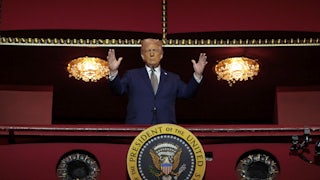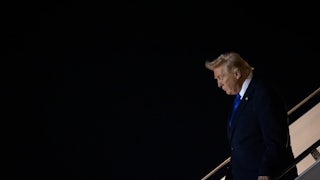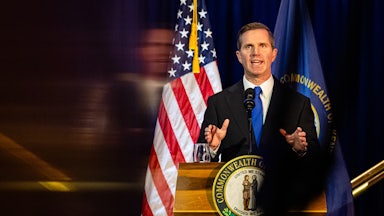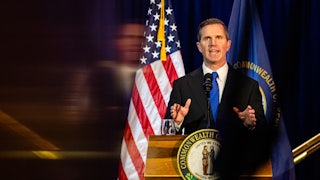Earlier this month, Project Veritas, best known for its made-for-right-wing-media “stings,” became an unlikely focus of press freedom debates. The Justice Department reportedly raided the homes of founder James O’Keefe and two of his associates as part of an investigation into the alleged theft of a diary owned by Ashley Biden, President Joe Biden’s daughter. That move drew strong critiques of the Justice Department and the Biden administration from press freedom watchdogs.
“Unless the government had good reason to believe that Project Veritas employees were directly involved in the criminal theft of the diary, it should not have subjected them to invasive searches and seizures,” Brian Hauss, an ACLU attorney, said in a statement on behalf of the civil liberties organization. The Freedom of the Press Foundation said that the raid “may have serious implications for press freedom,” noting that Project Veritas’s activities could conceivably be described as journalism even if the group’s critics find its tactics unsavory.
Since then, a parallel legal battle has opened up in which Project Veritas has made a heel turn of sorts, repaying its would-be allies by transforming itself into a foe of press freedoms. A New York state court judge issued an order on Thursday night to temporarily bar The New York Times from publishing certain documents about Project Veritas that it had obtained—an exceedingly rare instance of an American court compelling American journalists not to engage in journalistic practices.
Judge Charles Wood, who serves on the Westchester County Supreme Court, ordered the Times to “immediately sequester, protect, and refrain from further disseminating or publishing any of Plaintiff Project Veritas’ privileged materials in the possession of The New York Times, or its counsel.” (New York, quite confusingly, refers to its trial courts as “supreme courts.”) He also ordered the newspaper to “cease further efforts to solicit or acquire Plaintiff Project Veritas’ attorney-client privileged materials”—an even more unusual move that could plausibly prevent legitimate news-gathering.
The order came as part of a libel lawsuit filed by O’Keefe’s organization against the Times about a voter fraud–related story in 2020. More recently, Project Veritas and the Times butted heads over a story the Times ran last week on its undercover tactics. In that story, the Times used communications and memos between the organization and its lawyers to describe how Project Veritas tries to “gauge how far its deceptive reporting practices can go before running afoul of federal laws.” The group is famous for using sting operations and false identities when documenting what it sees as bias and wrongdoing by others.
Project Veritas has suggested that the Times may have received the memos from sources within the Justice Department, which in turn had obtained them through the FBI raid earlier this month. For obvious reasons, the Times and its reporters haven’t disclosed the identity of their source or sources. A Times spokesperson told The Washington Post that the newspaper had obtained the memos before the FBI raid. Project Veritas nonetheless asked a federal court to impose additional protections on the materials seized by the FBI and to order the Justice Department to identify who (if anyone) had allegedly leaked information about the raid to the Times.
Wood’s order amounts to prior restraint, the legal term generally used for when courts block a newspaper or other journalistic organization from publishing something. The Supreme Court set an exceedingly high bar for courts to use prior restraint against journalists in the Pentagon Papers case in 1971, when the Times and the Post published material from classified Pentagon reports about the Vietnam War. As part of the order, Wood also signaled that he could go further and compel the Times to “remove all references and descriptions” to the materials in question from the November 11 article after a hearing next week.
Times executive editor Dean Baquet denounced the order in strong terms and said the newspaper would appeal it. “This ruling is unconstitutional and sets a dangerous precedent,” he said in a statement. “When a court silences journalism, it fails its citizens and undermines their right to know. The Supreme Court made that clear in the Pentagon Papers case, a landmark ruling against prior restraint blocking the publication of newsworthy journalism. That principle clearly applies here. We are seeking an immediate review of this decision.”
Unsurprisingly, Wood’s order also sparked an uproar among press freedom groups. “This is the first prior restraint entered against The New York Times since the Pentagon Papers, and it is an outrageous affront to the First Amendment,” Bruce Brown, the executive director of Reporters Committee for Freedom of the Press, said in a statement on Thursday night. “Issuing such a gag order is a fundamental violation of the First Amendment,” Parker Higgins, the advocacy director of the Freedom of the Press Foundation, said in a statement. “Even if the underlying materials were misappropriated or somehow unlawfully obtained by an outside source, the right to report on those materials, and to publish that reporting, is a cherished and long-established cornerstone of press freedom in this country.”
How could Project Veritas claim the mantle of press freedom in one case while undermining it elsewhere? Fairly easily, apparently. In a statement obtained by the Times, which reported on its own legal defeat before Wood, O’Keefe suggested that it was The New York Times itself that had somehow violated press freedom. “The paper needs to decide if it is in favor of press freedom for all, or only itself, because it can’t have it both ways,” he told the newspaper. Elizabeth Locke, one of Project Veritas’s lawyers, also told the Post that Wood’s order didn’t amount to prior restraint at all, even though it explicitly forbids the Times from publishing certain material in the future.
Neither O’Keefe nor any other Project Veritas member has been charged with anything in relation to the theft, and the group has denied any wrongdoing or involvement with it. The Justice Department told a federal court this week that its investigation was still ongoing. In a partially redacted court filing on Friday, federal prosecutors said that past Supreme Court decisions “[draw] a clear and critical distinction ‘between stealing documents and disclosing documents that someone else had stolen previously,’” quoting from other court rulings. That could be read as an insinuation that Project Veritas’s involvement may be more extensive than the group claims, but the filing does not include any unredacted information to support it.
Indeed, it’s possible that all of this ends without any federal charges filed against O’Keefe or his associates. In that case, the only lasting damage done would be to the constitutional right and principle of a free, unrestrained press. O’Keefe and Project Veritas have asserted that they are a journalistic enterprise and that their acts are fully protected by the First Amendment. In many circumstances, they appear to be right. But while Project Veritas may be protected by the First Amendment’s protections of a free press, their efforts to squelch journalism by other outlets shows they are no friend to that right or to the press that it protects.






